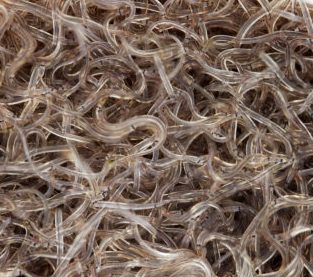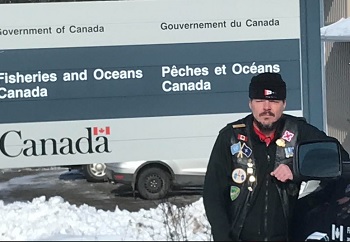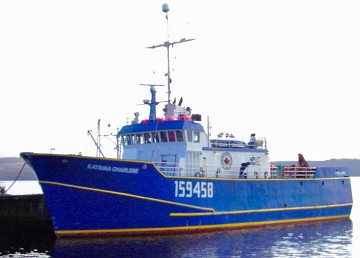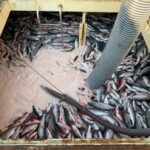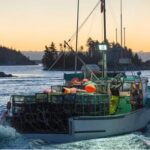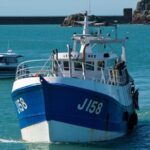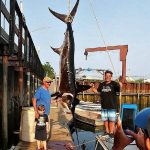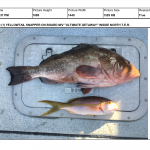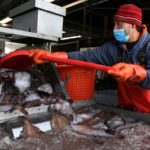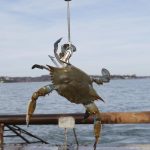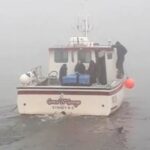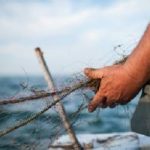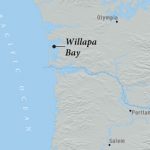Tag Archives: DFO
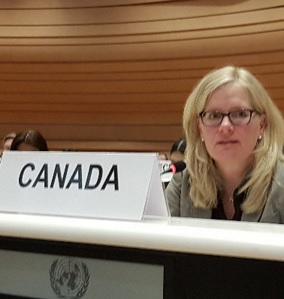
Canada’s lobster dispute goes international – UN committee seeks answers from Canada over racism, violence against Mi’kmaw fishers
The chair for the UN Committee on the Elimination of Racial Discrimination (CERD) asked Leslie Norton, Canada’s permanent representative to the United Nations in Geneva, Switzerland to explain what Canada has done to Investigate alleged acts of racism, violence and vandalism against Mi’kmaw fishers and supporters, Investigate alleged lack of response by officers with the RCMP and the Department of Fisheries and Oceans to protect Mi’kmaw people,,, The UN committee has given Norton until July 14 to provide a response. Sipekne’katik Chief Mike Sack said he was happy to see the letter from the UN committee. “It shows some hope that Canada has to answer for their actions or their lack of actions,” >click to read< 12:38
Canada’s lobster dispute goes international -Indigenous fishers say they have treaty and Supreme Court rights to fish where and when they want,,, Commercial fishers say the season is regulated and limited in order to conserve the resource,,, >click to read<
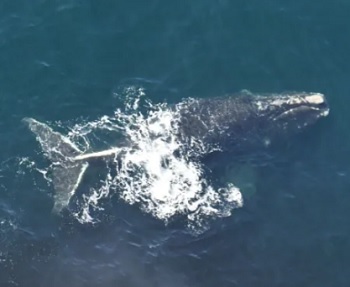
Two North Atlantic Right Whales detected in the Gulf of St. Lawrence cause a season long fishing area closure
As a result, an area east of the Iles-de-la-Madeleine is closed to fishing activities until Nov. 15, while some surrounding areas will close at 5 p.m. on Saturday until further notice. DFO provided a 72-hour notice because of the weather forecast and to allow time for fishing gear to be removed. The crab fishing area known as 12F, east of the Iles-de-la-Madeleine, remains under a 15-day closure that began after the first whale of the year was spotted in late April. >click to read< 13:22
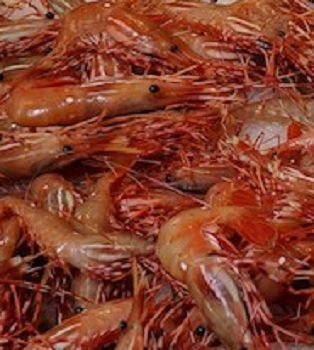
DFO: ‘tubbing’ can continue for the commercial prawn fishery 2021 season
“Our goal is, and always has been, to see our Pacific prawn fishery continue to thrive. Working in partnership with the Pacific Prawn Fishermen’s Association, we have agreed on a process that will allow harvesters to freeze their catch at sea this season, just as they’ve done for years. Size limits remain a critical part of a sustainable prawn fishery, and we will work with industry to develop viable, alternative practices for the long-term. But with the season fast approaching, it’s important that British Columbians understand they can, and should, continue to purchase delicious, frozen Pacific prawns.” >click to read< 07:35
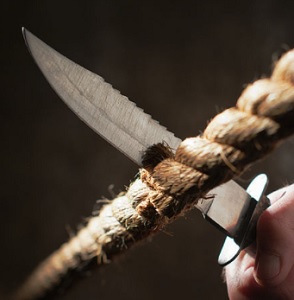
RCMP investigating gear slashing near Petit-de-Grat, Potlotek lobster traps seized for a ‘variety of reasons,’ says DFO
A dispute in a Cape Breton fishing community is being investigated by the Nova Scotia RCMP. Police described it as a case of “mischief,” and estimated the total financial loss for the traps and lobster is approximately $10,000. RCMP confirm there is no connection between this incident and reports of the Department of Fisheries and Oceans seizing traps from nearby Potlotek First Nation. >click to read< Potlotek Chief Wilbert Marshall 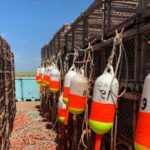 says federal government failing to accommodate treaty rights – A Mi’kmaw chief in Nova Scotia says a lobster fisherman whose traps were seized last week was fishing in accordance with his treaty rights. The seizure took place on April 30, the first day of the Potlotek First Nation’s spring lobster season. DFO said the removal of gear in St. Peters Bay was part of routine inspections to ensure the individual was compliant with the Fisheries Act. >click to read< 18:55
says federal government failing to accommodate treaty rights – A Mi’kmaw chief in Nova Scotia says a lobster fisherman whose traps were seized last week was fishing in accordance with his treaty rights. The seizure took place on April 30, the first day of the Potlotek First Nation’s spring lobster season. DFO said the removal of gear in St. Peters Bay was part of routine inspections to ensure the individual was compliant with the Fisheries Act. >click to read< 18:55
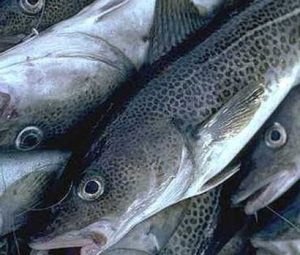
How Newfoundland’s wild fisheries have gone from plentiful to pitiful – How did we get here?
The headline in the daily paper at the end of January 2019 had said it all: Cod recovery still far off: DFO. In the case of cod, the same factors that had contributed to a hopeful comeback — thriving capelin and warming waters — had since swung in unfavourable directions. Fewer capelin prey and changing environmental conditions did not bode well for cod. Now, in 2021, the prognosis for the cod population, capelin and the environmental 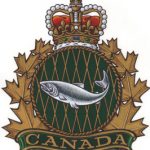 conditions remains no better. How did we get here? DFO science shows several factors are predominantly to blame for declining cod and capelin populations, including: natural causes, especially lack of capelin prey in the case of cod; high predation, particularly from fish (more so than seals), in the case of capelin; and warming ocean waters, among other environmental factors. >click to read< 08:26
conditions remains no better. How did we get here? DFO science shows several factors are predominantly to blame for declining cod and capelin populations, including: natural causes, especially lack of capelin prey in the case of cod; high predation, particularly from fish (more so than seals), in the case of capelin; and warming ocean waters, among other environmental factors. >click to read< 08:26
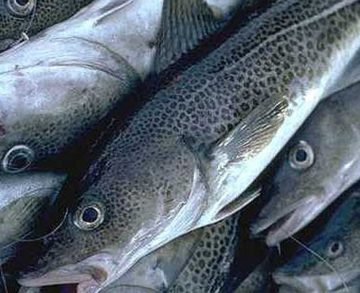
Fishermen should be listened to
It’s a typical story of David versus Goliath,,, That appears to be the case as prawn fishers on the Island take a stand against what looks to me to be an arbitrary and bureaucratic decision by the Department of Fisheries and Oceans Canada to change regulations regarding the harvesting of spot prawns, which now makes the sale of frozen-at-sea spot prawns illegal. Thanks to the efforts of many, has agreed to conduct an emergency review of  the regulations and, hopefully, common sense will prevail and the new rules will be reversed. Unfortunately, that kind of common sense just didn’t appear to exist in DFO when the northern cod stocks collapsed off Canada’s east coast in the early 1990s. >click to read< 07:25
the regulations and, hopefully, common sense will prevail and the new rules will be reversed. Unfortunately, that kind of common sense just didn’t appear to exist in DFO when the northern cod stocks collapsed off Canada’s east coast in the early 1990s. >click to read< 07:25
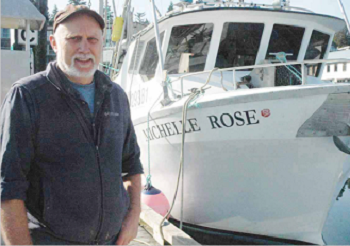
DFO to conduct emergency review of new West Coast prawn fishery regulations
“It’s hard to say if the review will accomplish anything, but I’m happy the issue is being taken seriously,” “So far, due to pressure from the public, the Department of Fisheries and Oceans Canada has said that, as far as they are concerned, defying the new regulations is a contravention of the law, but they won’t enforce the regulations in 2021. But that’s just punting it down the line. Fishers and the communities need this changed and we need a long-term solution to this issue.” DFO’s objection to freezing spot prawns on fishing boats is in reference to a reinterpretation of the regulation requiring all harvested products to be readily available for measurement by enforcement officers on fishing boats. >click to read< 07:55
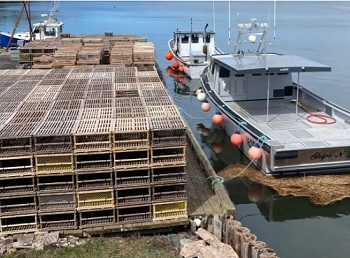
Lobster season delayed on P.E.I.’s North Shore, now, Southern P.E.I. lobster crews as well
Setting day was scheduled for Friday, but that has been moved to Monday for lobster fishing area 24, which includes the North Shore of P.E.I. A decision on the opening for LFA 26A, which encompasses the southeastern shore from Point Prim to Victoria, is expected Thursday. Ian MacPherson, executive director of the P.E.I. Fishermen’s Association, says delays are not uncommon, but fishermen were hoping for a good start this year after the season was delayed two weeks last year due to COVID-19. >click to read< – The opening of the spring lobster season is being delayed for southern Prince Edward Island because of high winds in the forecast, a day after a similar decision was made for North Shore boats. >click to read< 12:19
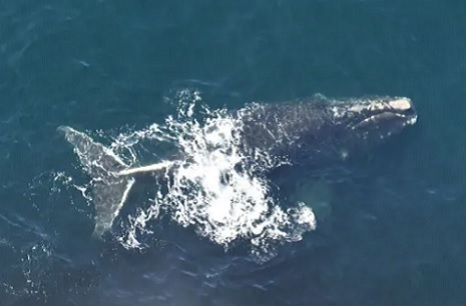
Right whale spotted in Canadian waters, DFO imposes 15-day crab fishing closure
The first North Atlantic right whale of the season has been sighted in Canadian waters, triggering an early and localized snow crab fishery closure in the Gulf of St. Lawrence. Observers flying in a plane spotted the whale Sunday afternoon northeast of the Magdalen Islands in the Cabot Strait.,, DFO said Monday it has responded. “This sighting has triggered a 15-day fishing closure in crab fishing area 12F,” the department said in a statement. Fishing area 12F is east of the Magdalen Islands. >click to read< 17:44
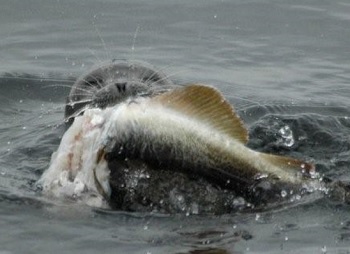
‘It’s more than just a fish:’ Scientists worry cod will never come back in N.L.
“Next year will be 30 years since the original moratorium on this stock,” said Robert Rangeley a marine biologist and director of science with Oceana Canada, a non-profit group aimed at protecting the country’s oceans. “It’s time to do something different.” Atlantic cod in the waters off Newfoundland’s northeast coast have been in the critical zone since the early 1990s, shortly before the federal government in 1992 announced a 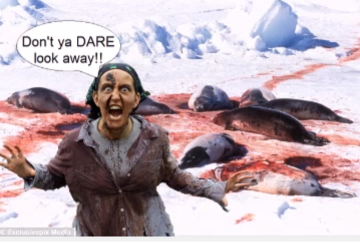 sweeping moratorium on fishing the species, instantly eliminating a traditional livelihood for about 30,000 people. There’s now a small commercial cod fishery, known as the “stewardship” fishery,,, The Fisheries Department declined a request for an interview to address criticism that it needs a greater focus on conservation. and a growing seal problem that is ignored in this communication,,, >click to read< 08:01
sweeping moratorium on fishing the species, instantly eliminating a traditional livelihood for about 30,000 people. There’s now a small commercial cod fishery, known as the “stewardship” fishery,,, The Fisheries Department declined a request for an interview to address criticism that it needs a greater focus on conservation. and a growing seal problem that is ignored in this communication,,, >click to read< 08:01
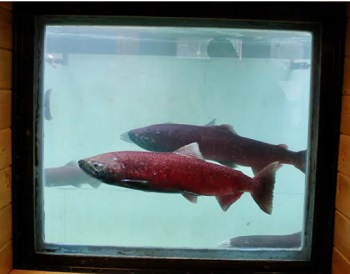
2021 Yukon River Chinook salmon run will likely be small, according to forecast
Somewhere between 42,000 and 77,000 Canadian-origin fish are anticipated to make the journey from the Bering Sea this year, Alaska and Yukon experts told attendees during the Yukon River Panel’s pre-season meeting on Tuesday. The most likely run size would be 57,000, they said. That’s smaller than the pre season outlooks for 2020 and 2019, and both those years ended disastrously when it came to getting enough salmon across the border. Under an international treaty, Canada and the U.S. are supposed to work together to ensure at least 42,500 fish make it to their spawning waters in Yukon. That spawning escapement goal hasn’t been met since 2018, last year only about 33,000 Chinook made it. >click to read< 13:21
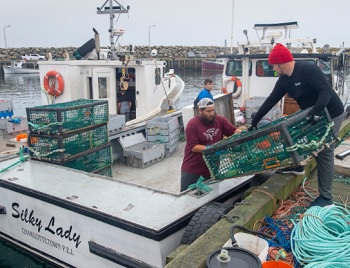
Crab traps seized by DFO during food fishery-Mi’kmaq fisher argues feds becoming more aggressive in seizures
Robert Syliboy and his crew dropped ten traps into the deep waters of the Atlantic Ocean to harvest snow crab for a community feast.,, He said the crab traps were seized before he reached the shore. video, >click to read< Mi’kmaq fisher argues feds becoming more aggressive in seizures of Indigenous gear -“I told fisheries officers I was fishing under the chief and council’s authority, and all the fish was going for food,” Syliboy said. “They disregarded the treaty I was fishing under.” The Indigenous band has cited Supreme Court of Canada rulings, including the Sparrow case in 1990, as affirmations of the Mi’kmaq practice of harvesting fish for ceremonies, food and gatherings. >click to read< 08:42

Newfoundland: A Discussion of the Impact of Seals on Cod Stocks
Those in the industry feel more needs to be done to track the impact seal predation is having on cod stocks in the province. The latest DFO modelling shows 3Ps cod deep in the critical zone, prompting meagre quotas to be cut in half.,, “Most fear if we don’t do anything” Sullivan says, “it’ll be the story of what’s going on with the neighbouring cod stock.” He says scientists working in the Gulf of St. Lawrence noted a few years ago that fishing or no fishing, seals were going to devour all the cod and the species could become extinct. >click to read< 09:10
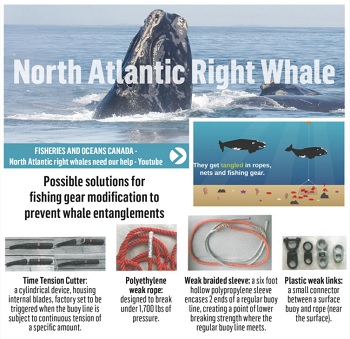
PEI fishermen to integrate ‘weak rope’ in 2023
Gear adjustments regarding the North Atlantic Right Whale for the 2021 fishing season are consistent with last year. Rope markings on fishing gear, first implemented in 2020, are designed to help pinpoint where right whale entanglements in gear take place. The fact there haven’t been any entanglements since the marking became mandatory is positive, Melanie Giffin, Program Planner with the PEI Fishermen’s Association, said. “It is kind of a good news story that we don’t know if they are working or not,” she said. According to Barre Campbell, DFO Media relations, there were no North Atlantic Right Whale entanglements or deaths reported in Canadian waters in 2020. However, there is a plan to follow,,, >click to read< 23:08
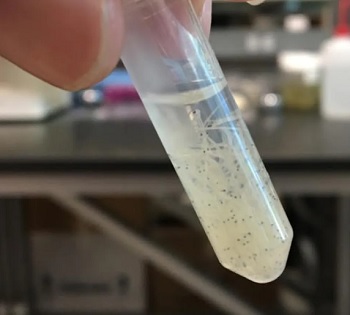
Scientists, First Nations team up in fresh attempt to revive struggling B.C. herring stocks
For decades, the fish were viewed as a virtually inexhaustible resource. They were canned, frozen, used as fertilizer, and even rendered into slippery goo to grease logs being skidded out of the forest. But the once coastal-wide bonanza is fizzling out. This year, most of the waters off B.C. were closed to commercial herring boats, with the only quota being allowed in the Strait of Georgia, along Canada’s southwest coast. The first collapse of the stocks happened in the 1960s, due to overfishing. They were allowed to recover but have had ups and downs in recent decades. The herring fishery in Eastern Canada has also been facing tough times. >click to read< 13:48
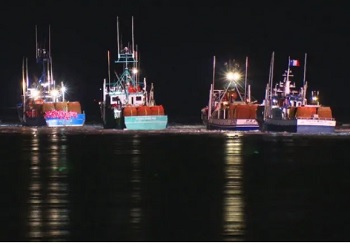
Crab fishing season off to early start on the Acadian Peninsula
New Brunswick’s snow crab fishers have begun their season. At the wharf in Shippagan, boats prepared to take to the Gulf of Saint Lawrence late Friday despite frigid temperatures and the presence of ice in some places. The season officially began at midnight. For Capt. Renald Guignard, it marked the continuation of a family tradition. The Acadian Peninsula received help from icebreakers from the Canadian Coast Guard and contracted boats to allow access to the waters before endangered North Atlantic right whales arrive. >click to read< 17:30
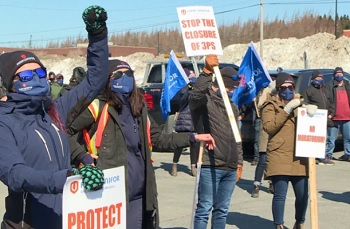
Tension over stocks – 3Ps Cod fishery closure ‘not going to happen on my watch,’
Fish harvesters rallied in Clarenville on Wednesday, voicing their fears that the federal government may shut down the cod fishery along Newfoundland’s south coast, a move the local member of Parliament says he won’t support. Dozens of members from the Fish, Food & Allied Workers union protested on the doorstep of the office of Liberal MP for Bonavista-Burin-Trinity, Churence Rogers, filling the parking lot with signs and the air with strong words about the fate of the fishing grounds 3Ps. Fish harvester Brian Careen said he’s spent most of his life fishing in the area, and told the crowd he feared it will be taken away by the Department of Fisheries and Oceans. >click to read< 10:58
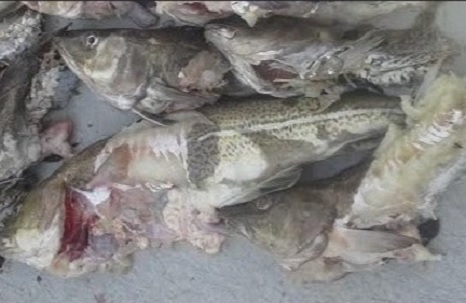
“DFO operates in denial of Reality”- Scientist says seal predation not having a significant impact on spawning cod stocks
Instead, Karen Dwyer, weighing in on the contentious debate over the health of cod stocks, said Thursday that environmental factors and a limited supply of the cod’s primary food source — capelin — are more to blame.,, Trinity Bay fisherman Keith Smith said DFO continues to downplay the impact of seal predation on cod. “It’s like DFO operate in denial of reality,” Smith said. “Fishing mortality is at an all-time low while natural mortality, likely led by the growing seal population that consumes vast amounts of both capelin and cod, remains high,”,,, >click to read< 11:04
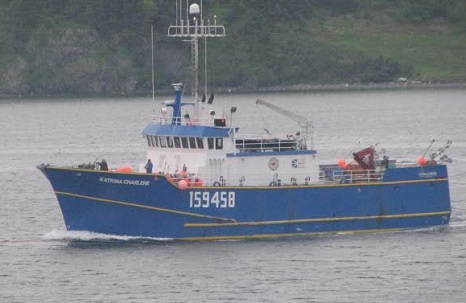
‘You can’t touch the union boat’- Former Fishery Officer alleges DFO kept 2012 Katrina Charlene conviction quiet
The Katrina Charlene and the crab quota it was built to fish have been in the news for almost 20 years for their connection to the FFAW. The story made national news in February when a Fishery Officer alleged DFO kept quiet a conviction against the trawler, so as to not embarrass the union. Today, there’s news the quota sold recently for $1 million, a fraction of its estimated value, to Conne River First Nation. The boat and quota have been sold, but questions remain. What happened to the tens of millions of dollars generated by the crab quota? Fisherman’s Road lays out the story as it’s never been told. First of a three-part series. By Ryan Cleary >click to read< 11:59

DFO’s ‘who’s on board’ policy – Bay Bulls harvester not on board!
“On Wednesday, an e-mail came out from DFO saying that as of April 1, this new crew list requirement would come into place, and they outlined what you needed to record,” said harvester Jason Sullivan of Bay Bulls. As per those new requirements, records of who is aboard the boat for each trip would need to be kept on file for five years. As part of the bookkeeping, a Fisher Identification Number (FIN) or Provincial Fisher’s Certificate would need to be recorded for everyone on board. But, according to Sullivan, not everyone may be able to obtain one of those numbers. >click to read< 09:01
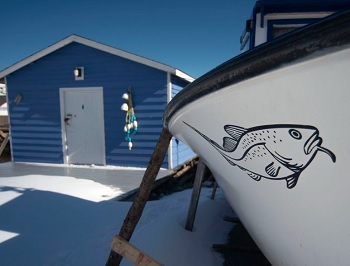
Nearly 30 years into the moratorium, Newfoundlanders look for ways to rebuild Cod
Atlantic cod, the species better known by its population name, Northern cod, is the fish of choice for Newfoundlanders and Labradorians. On a day spent handlining cod on the North Atlantic off of Petty Harbour-Maddox Cove, a centuries-old fishing community just outside of St. John’s, it can be easy to forget cod has a storied history – and a still uncertain future. Northern cod survived near-decimation from overfishing three decades ago, leading the federal department of Fisheries and Oceans Canada (DFO) to shutter the commercial cod fishery in 1992. Meant to last two years, the cod moratorium remains in effect, although DFO reopened an inshore commercial fishery, called the “stewardship fishery,” in 2006. >click to read< 11:00
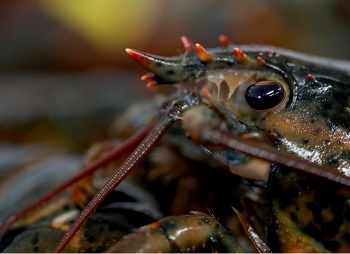
Canadian government likely has not met constitutional obligations to First Nations
The precedent set by the Supreme Court of Canada in the Marshall cases recognizes the First Nations’ right to fish under the Peace and Friendship Treaties but also allows for limitations by the government for the purpose of conservation. The Badger decision set out the parameters for applying those limitations and puts the onus on the federal government to show that the infringement of treaty rights is justified, and to consult with First Nations to find a solution that puts the minimum restrictions on Indigenous rights. The 13 Nova Scotia First Nations chiefs have unanimously rejected Jordan’s plan for a number of reasons, a major one being a lack of consultation. >click to read< 11:45

The flawed plan to rebuild Canada’s Northern cod – DFO’s plan is riddled with science and policy weaknesses
Canada is on the cusp of an inauspicious anniversary. Next year will mark 30 years since Newfoundland’s 500-year-old Northern cod fishery was shut down. The fishery was closed on July 2, 1992, because of a massive decline in the cod population, as much as 95 per cent, between the early 1960s and the early 1990s. The socioeconomic consequences were staggering: 30,000 to 40,000 jobs vanished overnight. Closure of what once was the largest cod fishery in the world stimulated an exodus of 10 per cent of the province’s population by the turn of the 21st century. Resource depletion was not anticipated when the federal Fisheries Act was passed in 1868. >click to read< 06:25
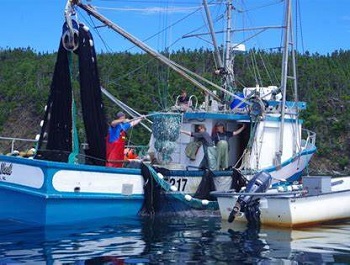
Capelin stocks aren’t climbing, could the fishery really face a moratorium in Newfoundland and Labrador?
The capelin stock in Newfoundland and Labrador has not had any sustained growth for 30 years, and the chances of a quick rebound are poor. Fran Mowbray, capelin biologist with Fisheries and Oceans (DFO), wouldn’t go as far as to say the stock could become extinct. “I don’t think we have enough evidence to say that. We are definitely concerned about the status of the stock right now. But worldwide, when forage species reach very low levels … it will take them an extremely long time to rebound.” >click to read< 19:15

DFO backtracks on rule that harvesters warned would destroy the local spot prawn industry
“The Minister has been informed that for this season, [conservation and protection’s] enforcement posture toward the practice of tubbing will be one of outreach and education,” reads a statement from the office of Minister Bernadette Jordan. James Lawson, a prawn harvester from Heiltsuk First Nation, says the latest announcement is cold comfort to fishermen like him. “They know the solution: just don’t bring [the change] in. Everyone is furious, the consumers, the prawn fishermen, it’s just ridiculous. People want local seafood and we want to supply it.” >click to read< 21:08
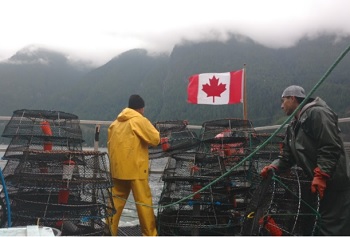
British Columbia: Prawn harvesters furious over DFO ‘tubbing’ ban – “Why are they reinventing the wheel?”
For decades harvesters in remote locations have flash-frozen one-pound tubs of a couple-dozen prawns in native sea water,,, This week Fisheries and Oceans Canada announced the practice of tubbing will be prohibited, as the block of ice prevents DFO inspectors from having ready access to the prawns inside.,, “Prawn harvesters have been using this method to store their catch for more than 50 years. “It would be just horrible for us,” said Prince Rupert prawn harvester Peter Haugen. “Why are they reinventing the wheel?” >click to read< 13:06

Nova Scotia’s Mi’kmaq chiefs want to see the science that restricts their fisheries.
Last week, Federal Fisheries Minister Bernadette Jordan, in a bid to end the conflict that has arisen since the Sipekne’katik First Nation began a moderate livelihood lobster fishery in September, announced that such fisheries would be required to operate within established commercial fishery seasons. That announcement, sandwiched between two meetings with the Assembly of Nova Scotia Mi’kmaw Chiefs, won praise from commercial fishers, who have contended that fishing outside their established seasons harms the fish stock. However, it drew scorn from Indigenous fishers,,, In a statement Friday, the assembly said that despite requesting specific data sets from the department during meetings over the past week, “including detailed scientific, economic and management data to justify the imposition of commercial seasons,” no such data has been provided. >click to read< 07:40






